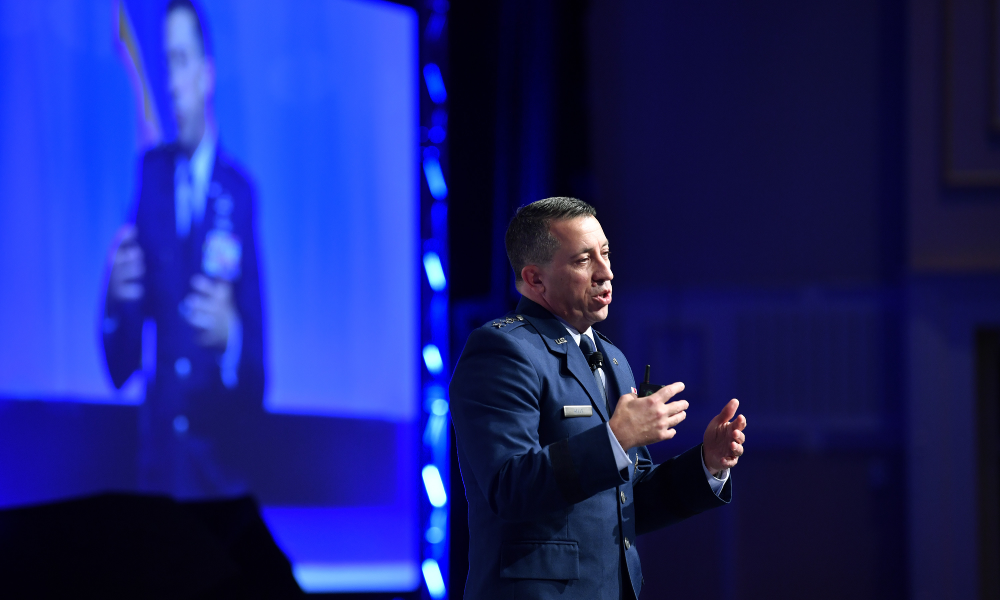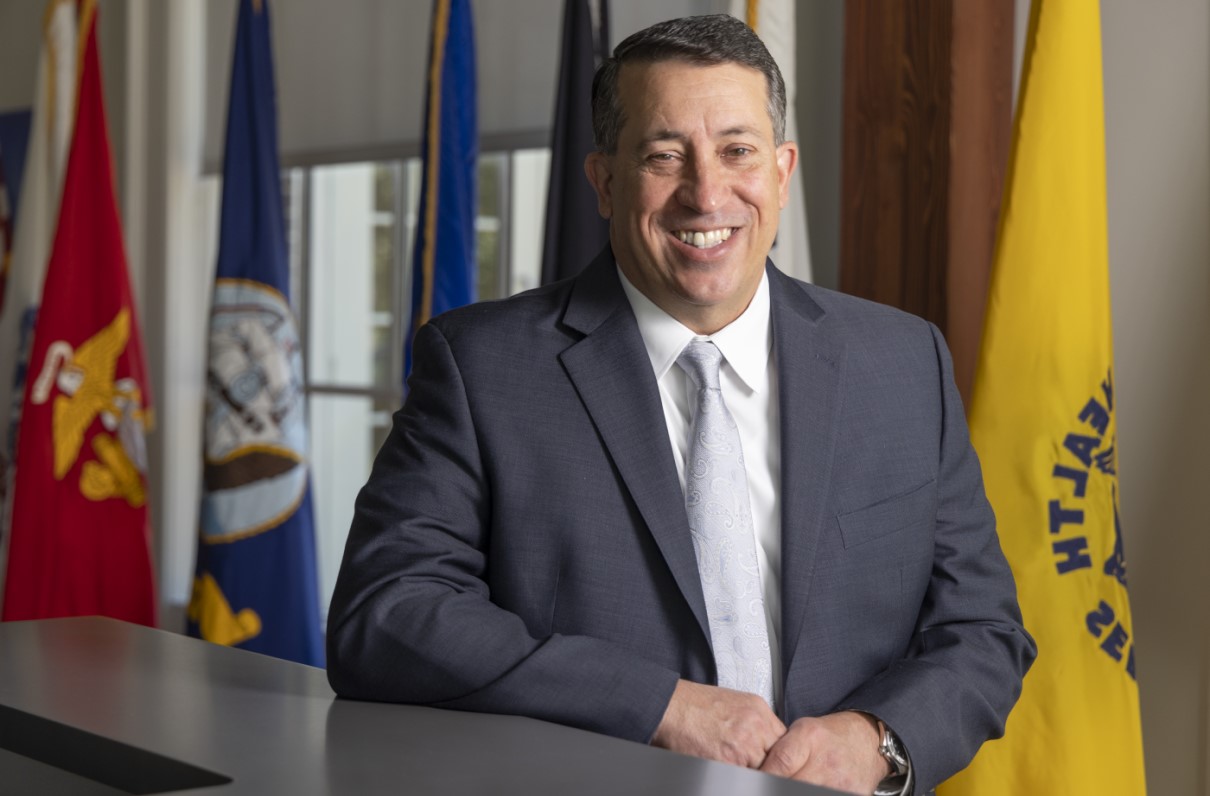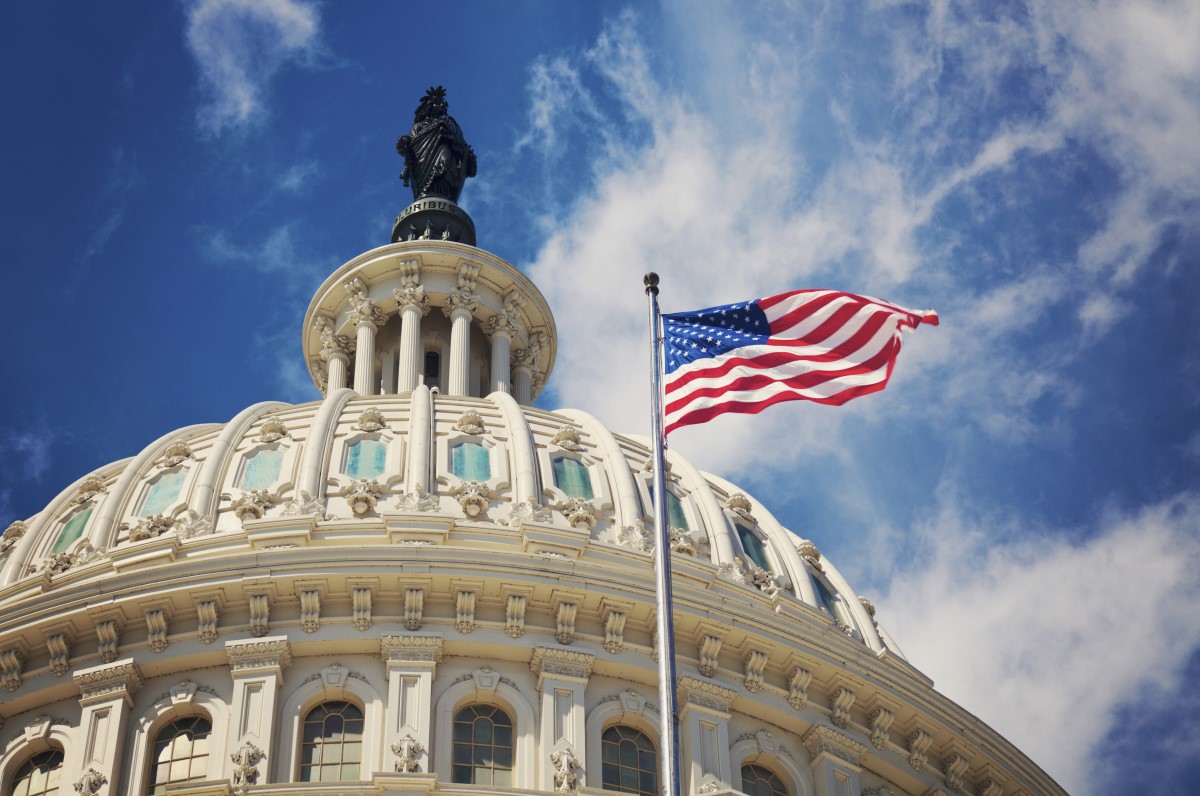(This article originally appeared in the January 2023 issue of Military Officer, a magazine available to all MOAA Premium and Life members. Learn more about the magazine here; learn more about joining MOAA here.)
Lt. Gen. Brian T. Kelly, USAF (Ret), enrolled in the University of Notre Dame’s ROTC program in the 1980s, thinking he would be enjoying a civilian career after four years in uniform.
Instead, his love for his fellow airmen and their mission led to more than three decades in the Air Force before his retirement in 2022.
“One job led to another job, and I said to myself, ‘Hey, I’ll stay one more year,’” Kelly said. “And then you look up and you’re at 25, 30 years of service. And every one of those days of service has been absolutely fabulous for me.”
Kelly, who served in Iraq, was most recently the Air Force’s deputy chief of staff for manpower, personnel, and services. He’s part of a dual-military couple: He and his wife, former Maj. Garrety Kelly, USAF, met while stationed at SOUTHCOM.
Brian Kelly said he is ready for a new challenge as MOAA’s president and CEO. He discussed what attracted him to MOAA and how his background makes him a perfect fit for the job. This interview has been edited for length and clarity.
Q. What interested you most in serving as MOAA’s president and CEO?
A. I spent 33 years of my career earning a Ph.D., if you will, in military and people. If you have the opportunity to leverage that in a way that allows you to continue to give back and never stop serving, that is pretty special. I just felt this fit, and I felt this attraction to the mission, to continue the service that I was already providing.
Q. You have had several leadership roles in personnel and human resources while in the Air Force. How will that experience help you in your role with MOAA?
A. I was fortunate enough to have some really great roles. I was the commander of the Air Force Personnel Center, which basically meant I was executing and providing human resource services, the day-to-day activities, to include a service call center similar to what we have at MOAA. Everything from bringing people into the Air Force to separation and retirement and everything in between, and providing those services for our active duty, Reserve, Guard, and civilian members. It taught me a lot about the perspective that each of those different entities brings to the team and a lot about customer service.
As the deputy chief of staff for manpower, personnel, and services, I was really focused on policy and resource advocacy, setting the policies, and protecting and generating the resources associated with taking care of airmen and their families. The ultimate mission was to provide the right type and right shape of airmen out to the field. But at the same time, our No. 1 business was the people business. So taking care of those people, taking care of the families really ended up being my main focus.

Lt. Gen. Brian T. Kelly gives an Air Force personnel update during the Air Force Association's Air, Space and Cyber Conference in National Harbor, Md., in 2018. (Photo by Wayne Clark/Air Force)
Q. Can you share some of your experiences of working with lawmakers on Capitol Hill? How do you view your role and MOAA’s role in working with these elected officials?
A. There are always some differences, and there are certainly political divides and political issues. But when it comes down to it, there’s a pretty close to universal belief that we as a nation want a strong defense. A strong defense allows our politicians to work with our allies and partners from positions of strength that in turn allow us to thrive economically.
I think all of the committees that I worked with on the Armed Services House and Senate side believe in an all-volunteer force. And they believe in the importance of taking care of the servicemembers in order to attract and retain that all-volunteer force. I know many of the staffers and some of the members on those key committees. I’m hopeful that provides me an ability to go in and talk to them and build on my existing relationships, having testified before most of them in the past.
Q. You have served as chairman and as a board member for the Army and Air Force Exchange Service and the Defense Commissary Agency. Did this provide fresh perspective on serving the military community?
A. The first thing that both of those taught me was how important those entities are. I was chairman of both of those organizations when COVID hit, and when the economic downturn started. There is a congressionally mandated market basket savings on those groceries. So you’re providing high-quality grocery products at a price that becomes affordable and reasonable for our military families and retirees. Same thing at the exchanges. You’re getting high-quality goods in many cases that are at reduced prices.
The other thing it taught me: There is a constant pressure from those who are in positions that have to look at resources and have a mission to tighten and balance budgets. And I understand that that’s part of their job. But those become attractive dollar targets in many cases for folks to go after and there will always be a need to defend those earned benefits.
Q. As we advocate for a strong volunteer force, where do you see areas of improvement in recruiting and retention?
A. In having an all-volunteer force, there are always going to be some personal and family sacrifices, there’s going to be difficulties. That’s inherent with voluntary military service. But there has to be some balance to where the service and sacrifices are worth the commitment. So that means the way we take care of those soldiers, sailors, airmen, Marines, Coast Guard members, the way you take care of their families, the way you compensate them is really important. And they pay attention to and they see what happens to those who have gone before them. That really matters in an all-volunteer force.
One of the things I think is important is to be able to tell the story about how well we take care of folks who have served. And so things like the recent PACT Act reinforce that your service is going to continue to be honored and supported.
There are a lot of opportunities in the press to portray some of the challenges associated with military service, but I don’t think those negatives get balanced enough with the positive stories. The ability to help people, to provide education, the opportunity to learn skills, and to then transition after military service to positive roles in our society. There’s an opportunity for organizations like MOAA to tell those positive stories of military service and help maintain the all-volunteer force.
PREMIUM Membership Comes With So Many Benefits. Are You Taking Full Advantage?
Find out just how many benefits are waiting for you, and start using them TODAY.



